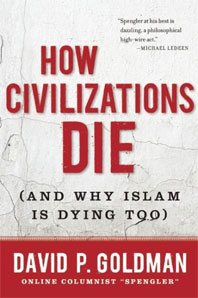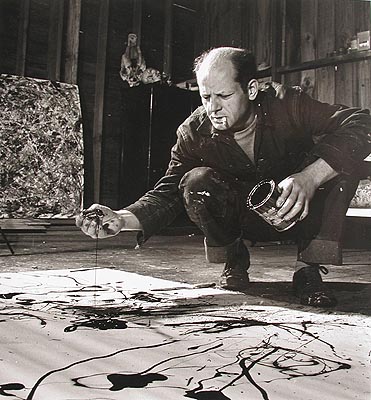The Eternal People
The dreamtime is over.
The Bible teaches us that flesh is temporary. This is bad news for those who distrust God. Flesh is all they have.
The dreamtime is over.
The Bible teaches us that flesh is temporary. This is bad news for those who distrust God. Flesh is all they have.
 Having never been much interested in understanding Islam, it has been helpful to read David P. Goldman’s take on it. He is Jewish, (his glowing comments concerning modern Israel are a dead giveaway), but he is surprisingly objective concerning Christianity and Islam.
Having never been much interested in understanding Islam, it has been helpful to read David P. Goldman’s take on it. He is Jewish, (his glowing comments concerning modern Israel are a dead giveaway), but he is surprisingly objective concerning Christianity and Islam.
In the more circumspect of his recent books, he observes that the decisive difference between Judeo-Christianity and Islam cannot be found by arguing about the amount of violence in their respective histories. Their disparate characters are exposed somewhere closer to home:
 The Closing of the Muslim Womb
The Closing of the Muslim Womb“Population decline is the elephant in the world’s living room. As a matter of arithmetic, we know that the social life of most developed countries will break down within two generations. Two out of three Italians and three of four Japanese will be elderly dependents by 2050. If present fertility rates hold, the number of Germans will fall by 98 percent over the next two centuries. No pension and health care system can support such an inverted population pyramid. Nor is the problem limited to the industrial nations. Fertility is falling at even faster rates—indeed, at rates never before registered anywhere—in the Muslim world. The world’s population will fall by as much as a fifth between the middle and the end of the twenty-first century, by far the worst decline in human history.” [1]
So writes David P. Goldman in the introduction to his recent book, How Civilisations Die (and Why Islam is Dying Too).
“That very day Pilate and Herod became friends with each other, for previously they had been at enmity with each other.” (Luke 23:12)
Getting a grip on the Tabernacle layout helps us understand the architecture of Creation, the history of mankind and the structure of the entire Bible. After reading Mark Steyn on the Islamic/secular conflict in Europe, I was thinking that the same “Tabernacle” categories can be found in the world today. Whatever we do, however much we distort the truth, we are still bound by the walls and furnitures set up in Genesis 1. And, in my humble opinion, the light this sheds on the current conflict is not only revealing concerning its true nature, but it also helps us to predict its future.
 Some excerpts from David P. Goldman’s essay, “Admit It, You Really Hate Modern Art,” in It’s Not the End of the World, It’s Just the End of You: The Great Extinction of the Nations.
Some excerpts from David P. Goldman’s essay, “Admit It, You Really Hate Modern Art,” in It’s Not the End of the World, It’s Just the End of You: The Great Extinction of the Nations.
Why is it that the audience for modern art is quite happy to take in the ideological message of modernism while strolling through an art gallery but loath to hear the same message in the concert hall? It is rather like communism, which once was fashionable among Western intellectuals. They were happy to admire communism from a distance, but very few chose to live under communism.
But Jesus knew their thoughts, and said to them: “Every kingdom divided against itself is brought to desolation, and every city or house divided against itself will not stand. If Satan casts out Satan, he is divided against himself. How then will his kingdom stand?” (Matthew 12:25)
“In AD70, the ‘office’ of Jew was finished forever (there are no more Jews in God’s eyes) and the “office” of Gentile was also finished. The middle wall was broken down. Any distinctions now are merely human distinctions.”